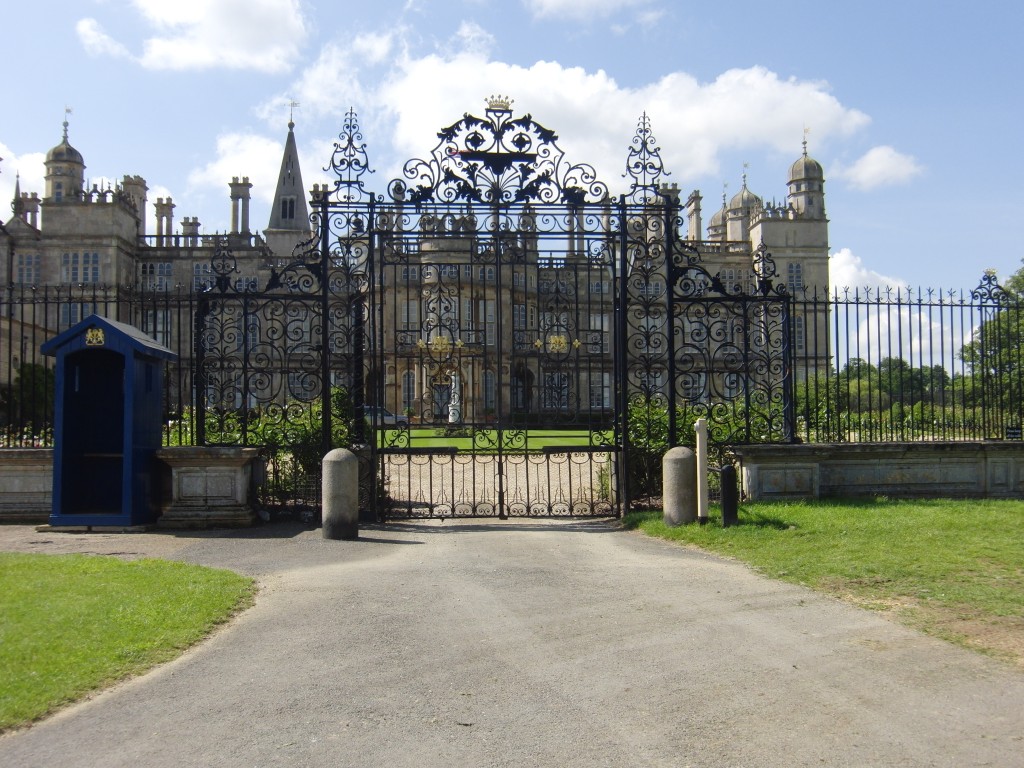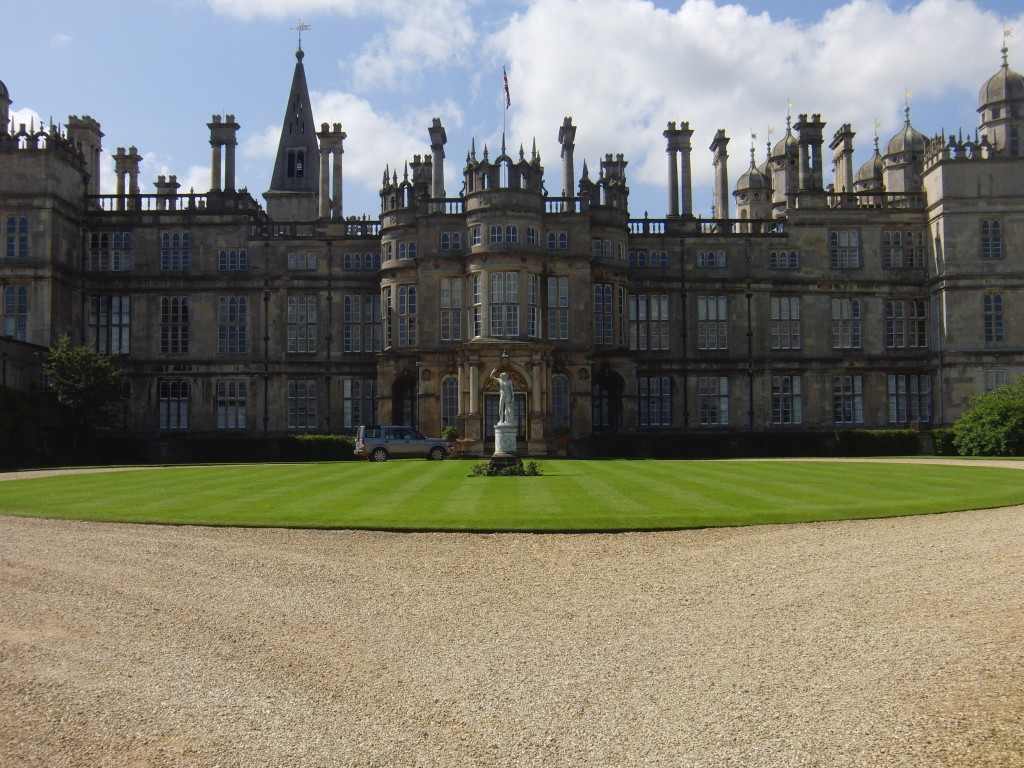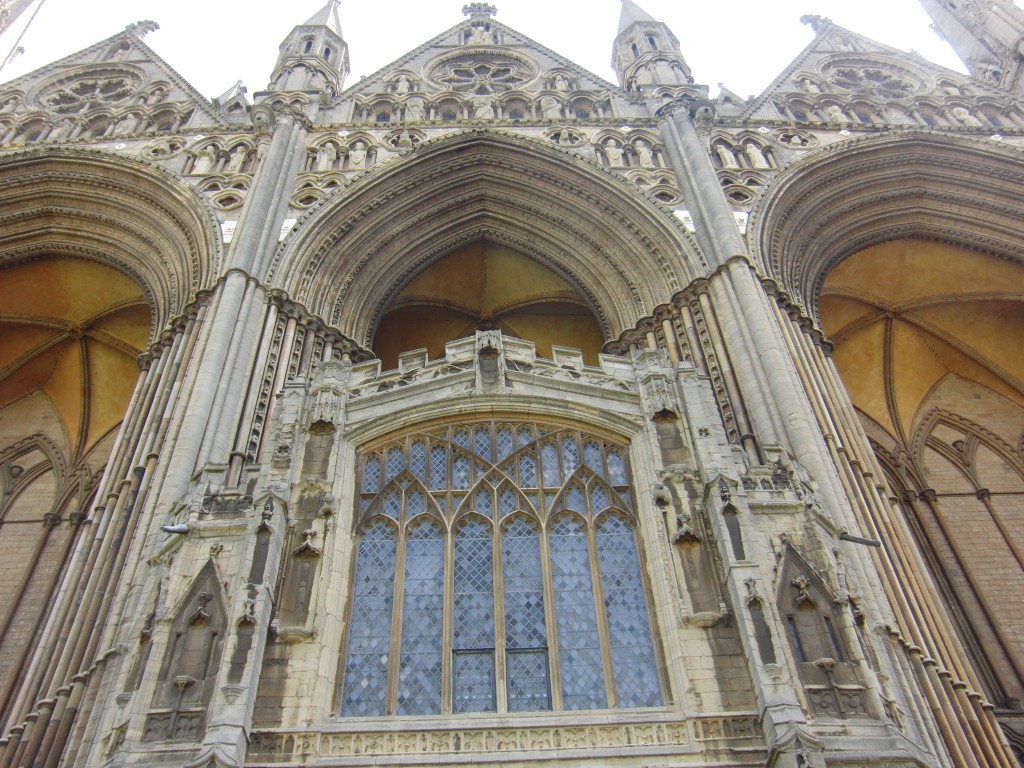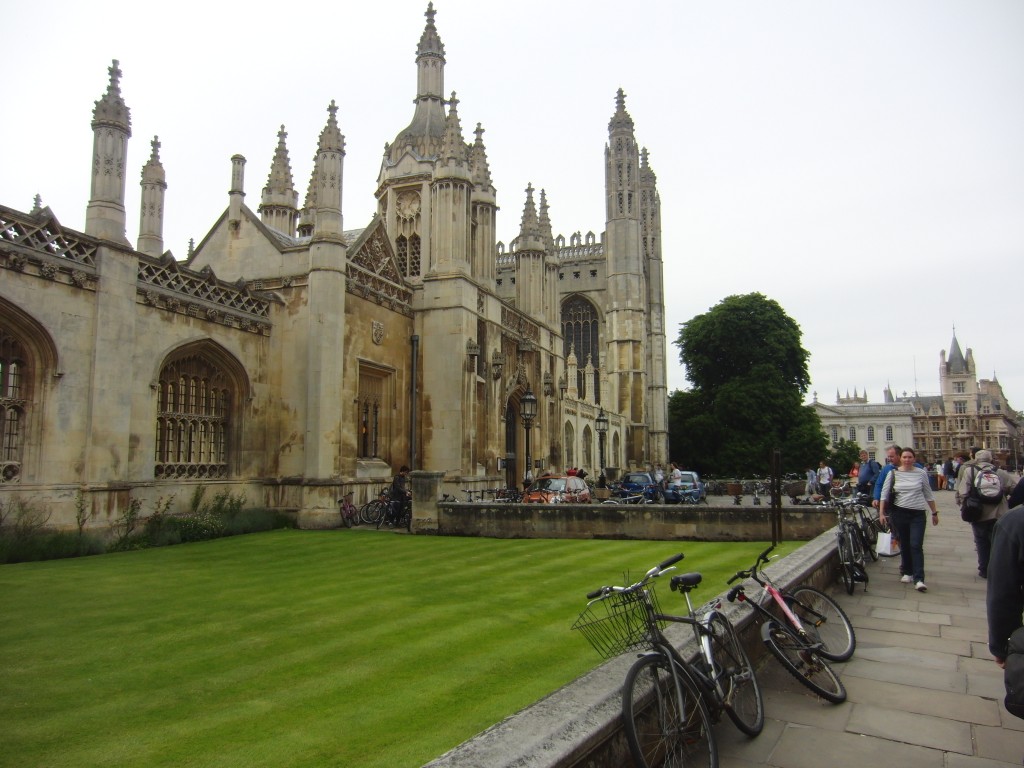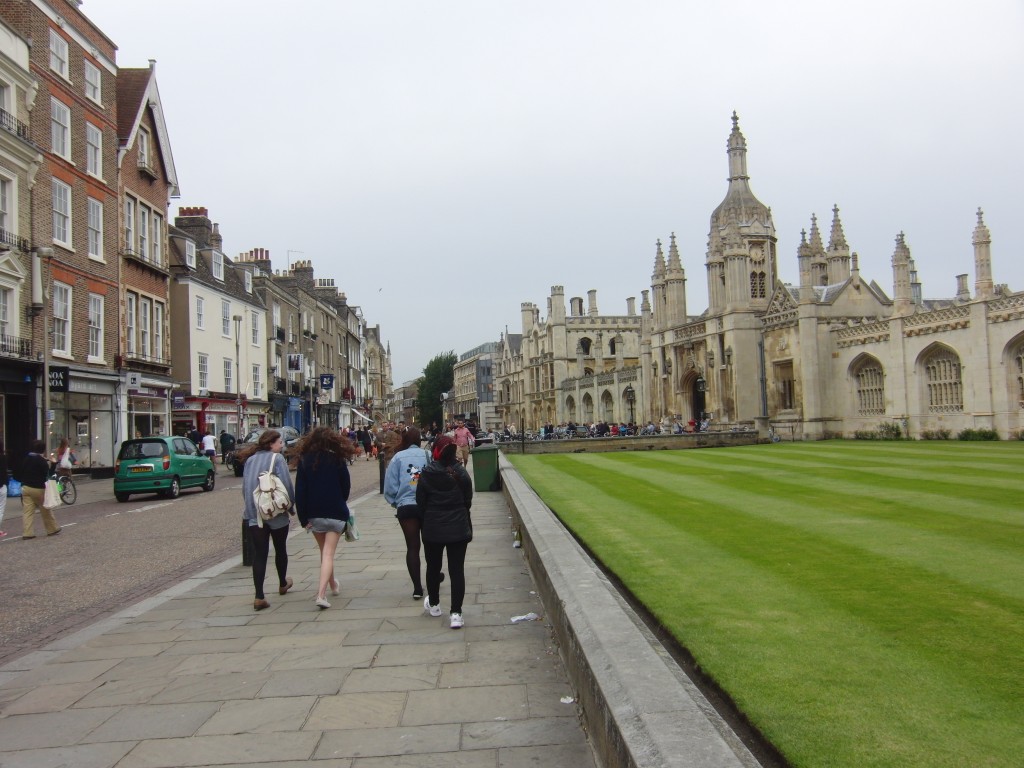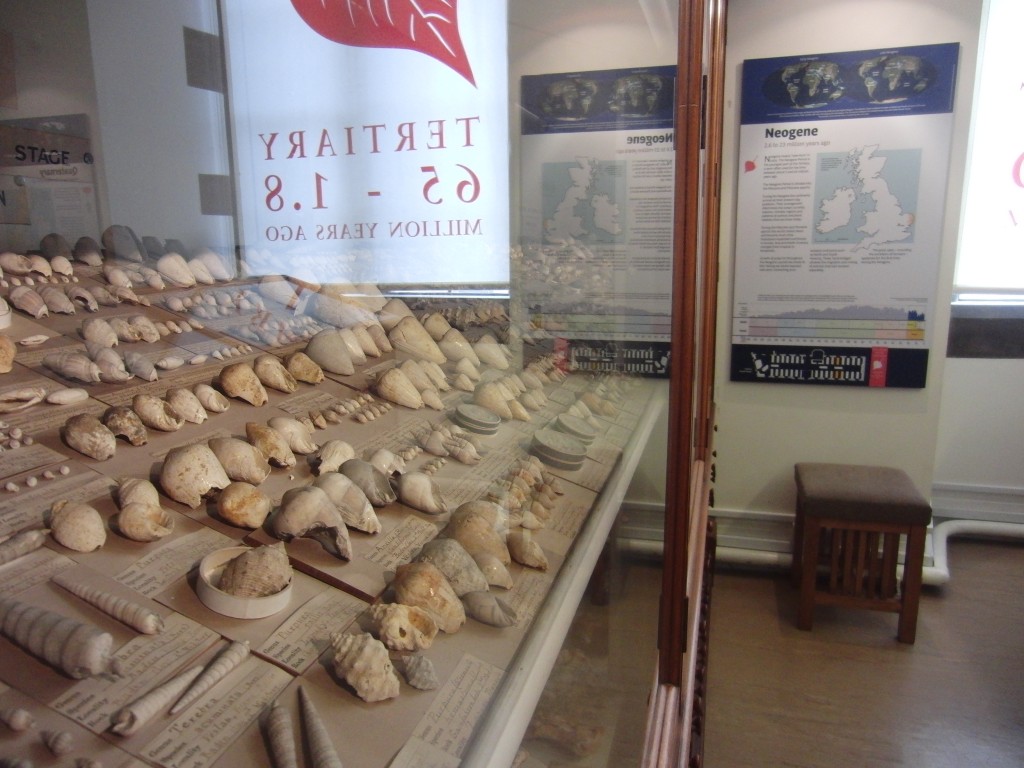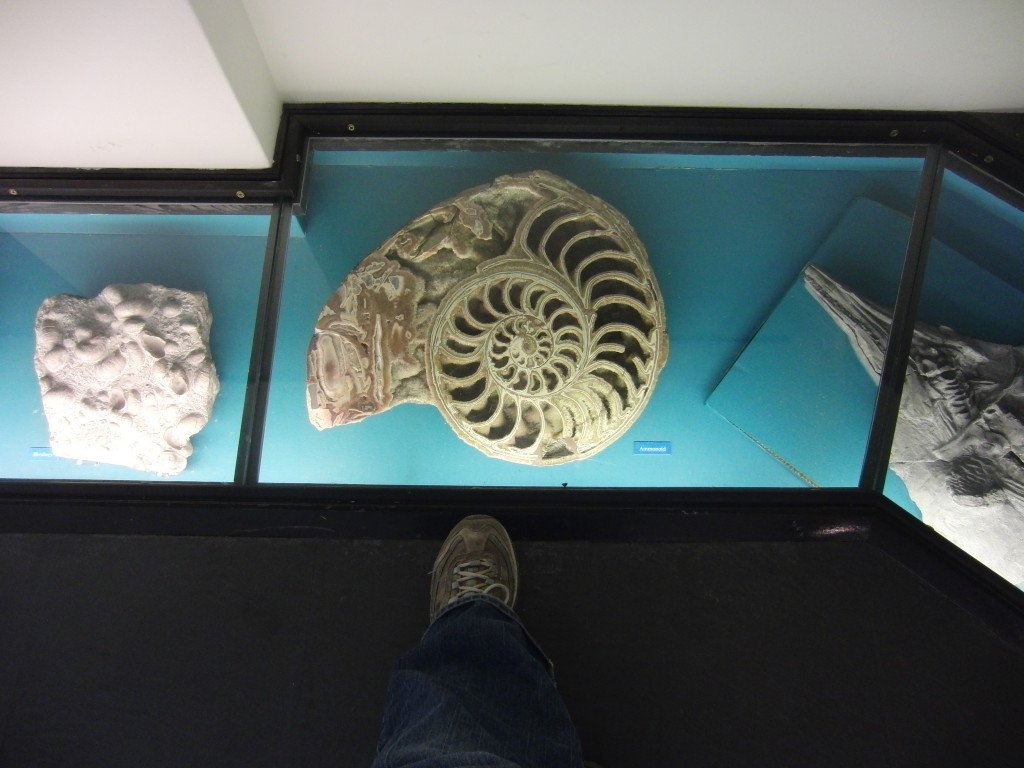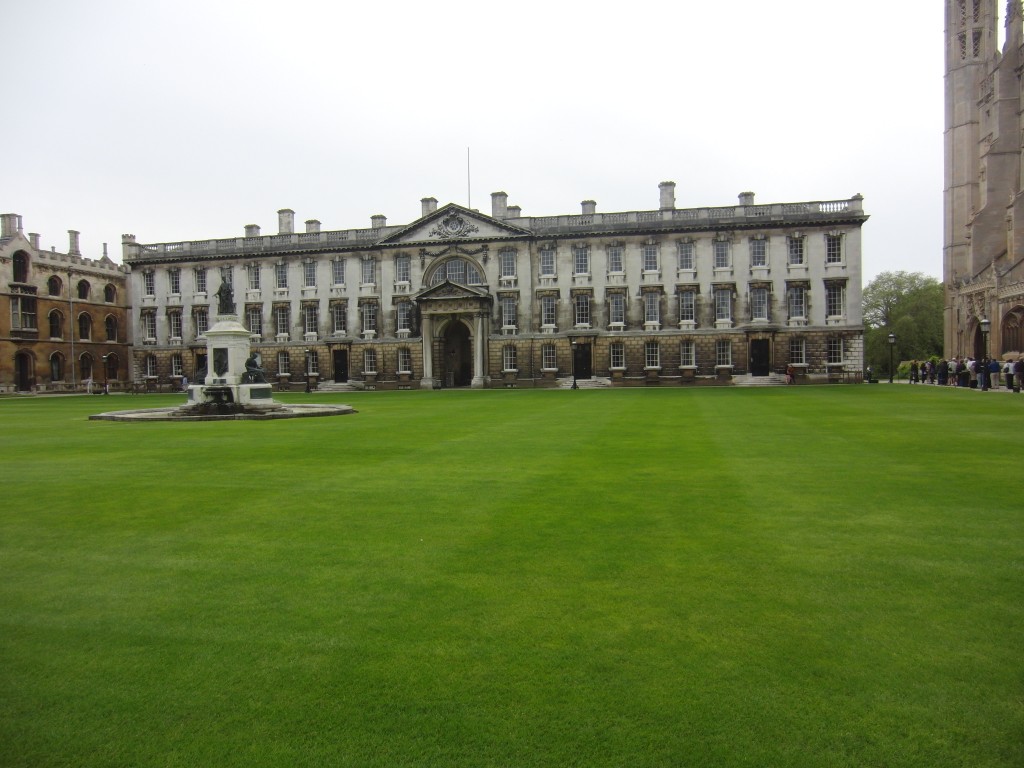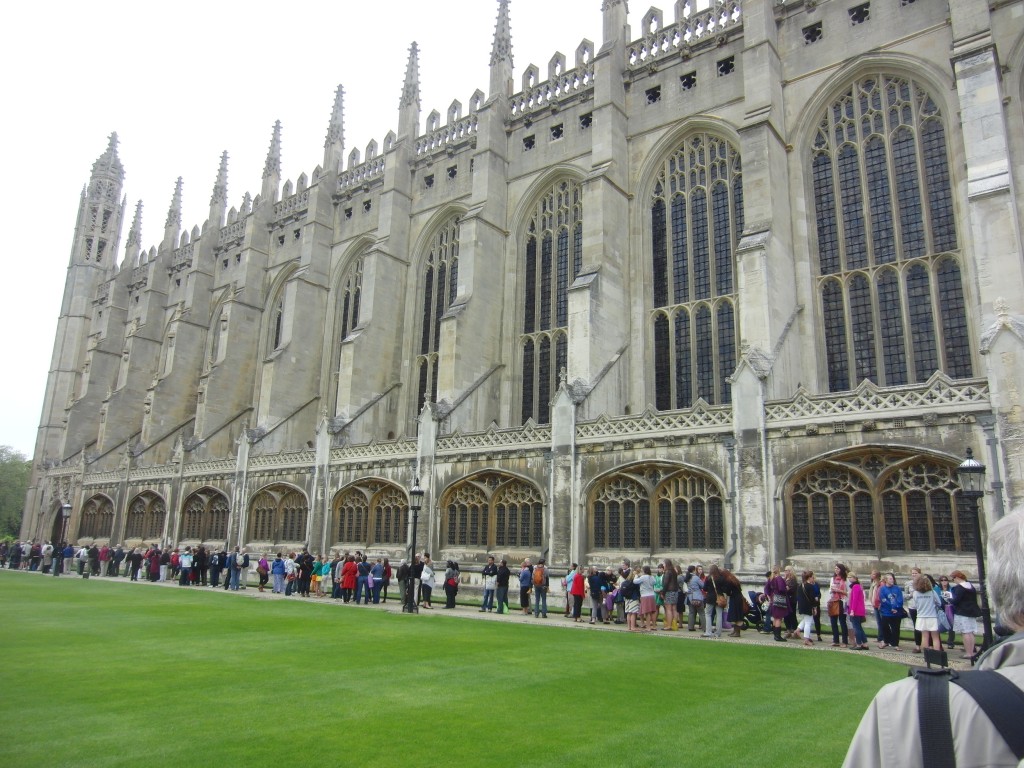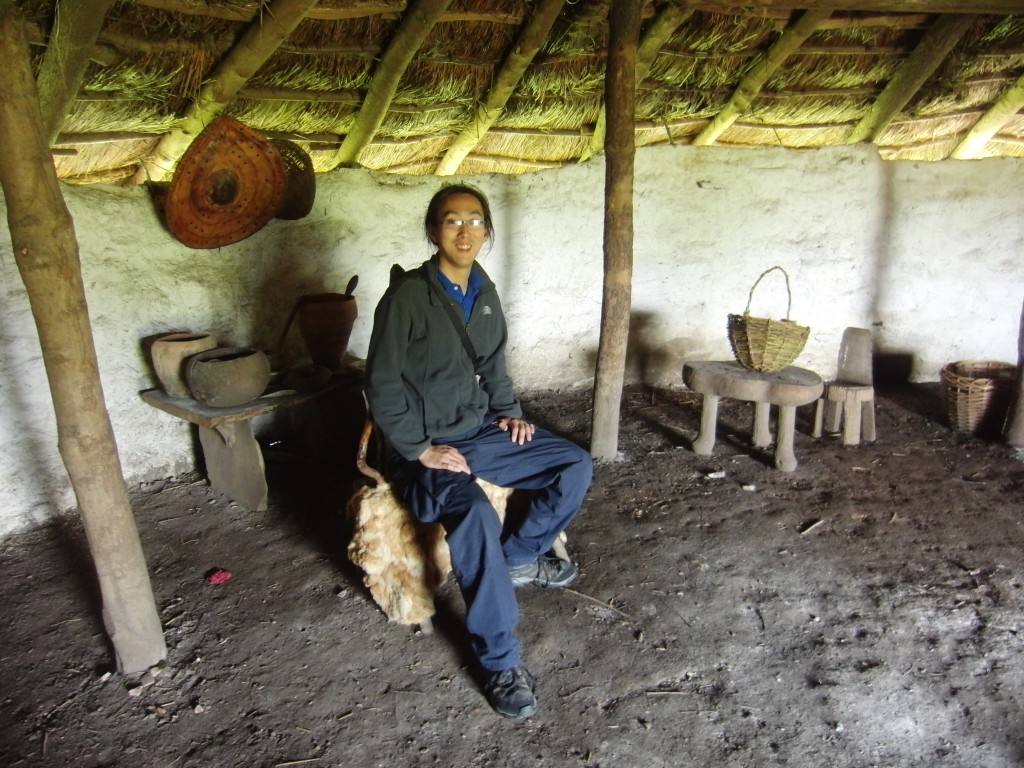Cambridge, Petersborough, and Flag Fen
Thursday, June 14th
Busy day today! I have decided to not go in order today, because… I can. So there. We traveled first to Burghley House, then Peterborough Cathedral, then Flag Fen, and finally Cambridge. Burghley House is a very large manor house and gardens, constructed originally in the 16th century, and then remodeled through the 18th century. It was the residence of William Cecil, Lord Burleigh; he was Elizabeth I’s head of the privy council and an all around important man. The house, however, was not open till 11, so we wandered around the outside and the grounds for a while, and then moved on.
Peterborough Cathedral is a 900 year old cathedral in the town of Peterborough. It’s definitely in one of the more incredible things we’ve seen so far. The site has been home of a Celtic abbey (which was destroyed by a Danish attack), before a Benedictine Monastery was built on the site. It had some really very beautifully decorated ceilings, and of course, the stonework was amazing. The cathedral had an installation of modern art in it, which was actually kind of cool. The first one was a giant sort of chandelier all out of plastic water bottles, and there were some giant draperies of broken CD’s, and so on. A couple of really cool mirror things were meant to work with the cathedral structure, so in general, it added an interesting dimension to the whole thing. On a historical note, the cathedral also contained the remains of Katherine of Aragon, first wife of Henry VIII. I was looking for some sort of giant effigy, based on what we saw yesterday, and totally walked by the panel in the floor the first time. It also used to be the resting place of Mary, Queen of Scots until her son, James I had her moved to Westminster.
Cambridge was also very cool. It actually reminded us a lot of Davis, because there are bikes everywhere! It’s kind of funny, because you have these giant, stately old buildings, and then there are 50 thousand bicycles chained out front. Davis has way better bike lanes, though. You can sort of tell that Cambridge existed before cars were a thing, and so when cars became a thing, they had to carve out space in between and under and around all the existing stuff. We wandered around the colleges, which were unfortunately closed (exams!) but we still got to see a lot.
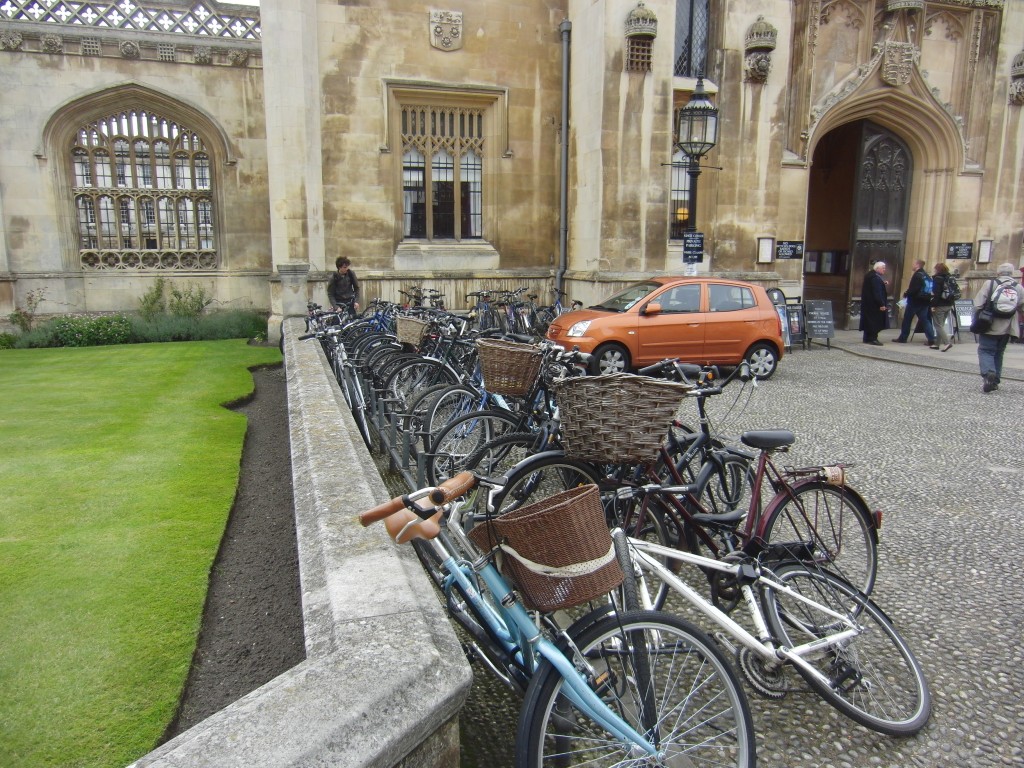
It’s like Davis! Only less hot, and with cuter bike baskets. And significantly prettier buildings. Seriously, Davis, how do you expect to withstand the test of time with the Death Star??
We also went to a funny little museum called the Sedgwick Museum of Geology. It was really a collection of all of the stuff related to geology and fossils that the people from the college brought back from all of their research and so on. They had a very extensive collection of fossils and rocks, and the museum was that old sort where they put out everything, so there were whole walls of fossil shells, and row upon row of little drawers and so on. They had a very interesting thing on Darwin, who was a Cambridge student, and how he influenced the study of geology. You always think of Darwin as such a biologist, but this exhibit was really focused on his work as a geologist. For example, he was the one who figured out how coral reefs form rings in the middle of the ocean (it’s because they form around the edges of volcanoes, which are then eroded down into the sea.) It was cool.

Charles’ Darwin’s signature! Actually, his notebook. He went to Cambridge, so they had a lot of his things in the museum.
After the museum, we went to King’s College Chapel, to go to Evensong, which is a daily service sung by the Cambridge Boy’s Choir. It wasn’t quite what we were expecting, but the singing was lovely, and the chapel was very impressive – a narrow, tall building, very very high. The ceilings were vaulted and very ornate. One funny thing we’ve been noticing all over – everything closes at 5, if not earlier. When we got out of the Evensong thing, we went back down through the city center, and all of the shops were totally closed up. I kind of thought that it would be different in Cambridge, it being a college town, and very busy with visitors. But nope! When we went into the town near us last Sunday, even the grocery store was planning to close at 4pm.
The highlight of the day was Flag Fen. Flag Fen is an archaeological park, and is an active dig site. What are they digging for, you ask? Well, they’ve found some really cool stuff from the Bronze Age. See, Flag Fen was sort of a swampy, wet area in the Bronze Age, so the people built a causeway and a platform in the middle. They drove pilings down into the marsh, and then built up a bridge from dry land to dry land across the marsh, with a platform for some sort of building in the middle. Well, they found the platform and bridge. Seems that when the Romans were making their way north, they buried under the entire remaining structure, and since it was so wet, and it had stayed wet, the wood never rotted. So they’ve got the thing excavated, under misters so that it stays wet. The wood has been so saturated that the water is basically the structural support, and if it dries out, the whole thing will crumble. But still! 3,000 + years old, and there it was. They think that this was probably a site of some religious significance, as they found a huge number of Bronze Age and Iron Age artifacts in and among the pilings. A lot of them appear to have been purposely broken, why exactly they don’t know, but they think it was ceremonial.
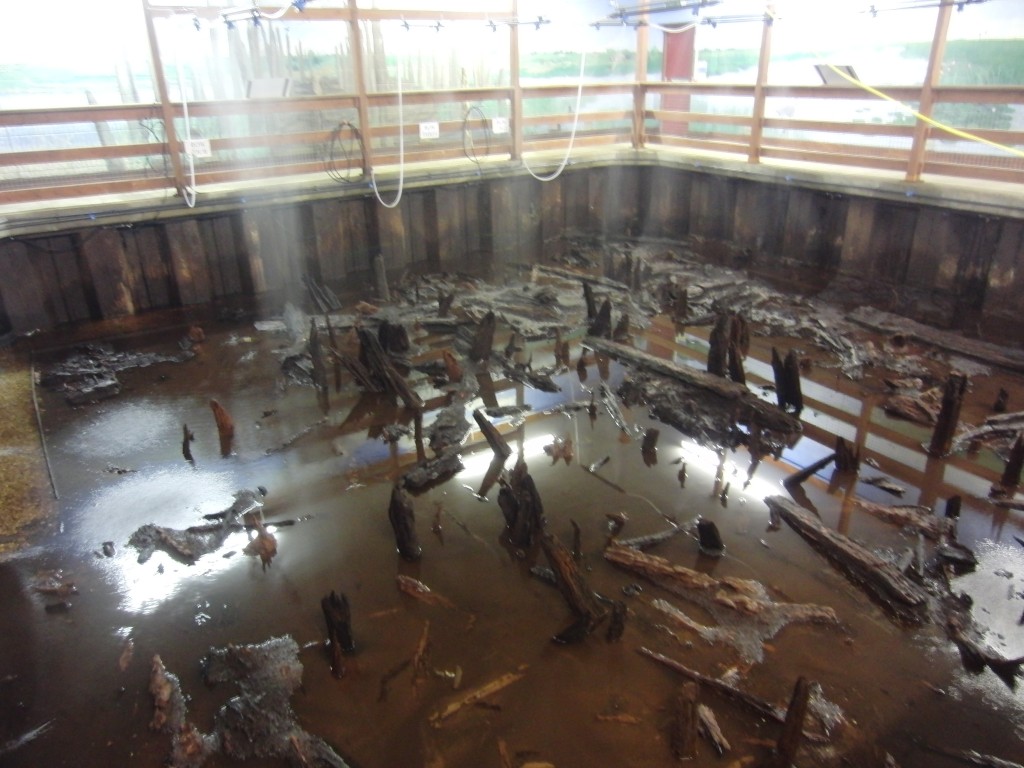
The dig at Flag Fen. There are misters because the wood is surviving only because it’s so wet, so it has to stay wet. They’ve actually made an artificial lake there, so that anything still in the ground is wet.
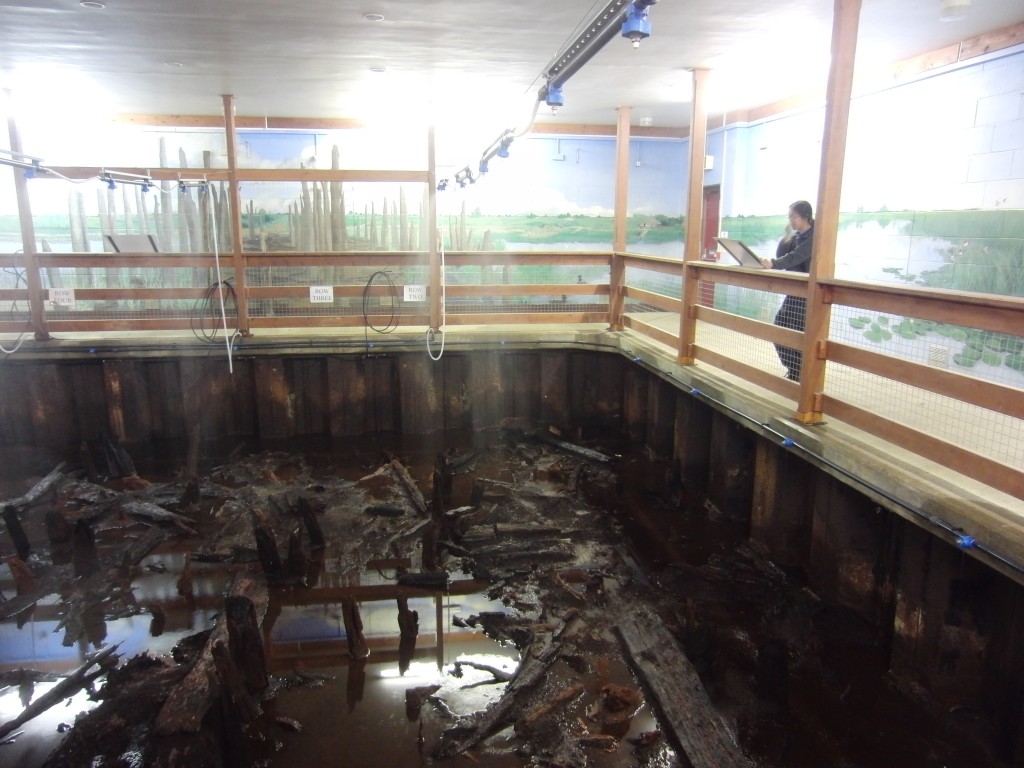
It was pretty neat to be able to see things from the bronze age, just right there. Especially something like wood. There were little specimen bags down in the dig every now and then. We were quite curious what was in them.
They have also built a replica Bronze Age roundhouse on the site, and a replica Iron Age roundhouse, as they site was in constant occupation throughout both time periods. They have also had to do a lot of work on the site to preserve any future archaeological remains. Specifically, they built an entire artificial lake under the museum, to keep the area flooded. Because the remains are mostly wood, keeping them wet is essential to their preservation, and the nearby developments are dropping the water table. It was pretty neat to be able to see something that old.
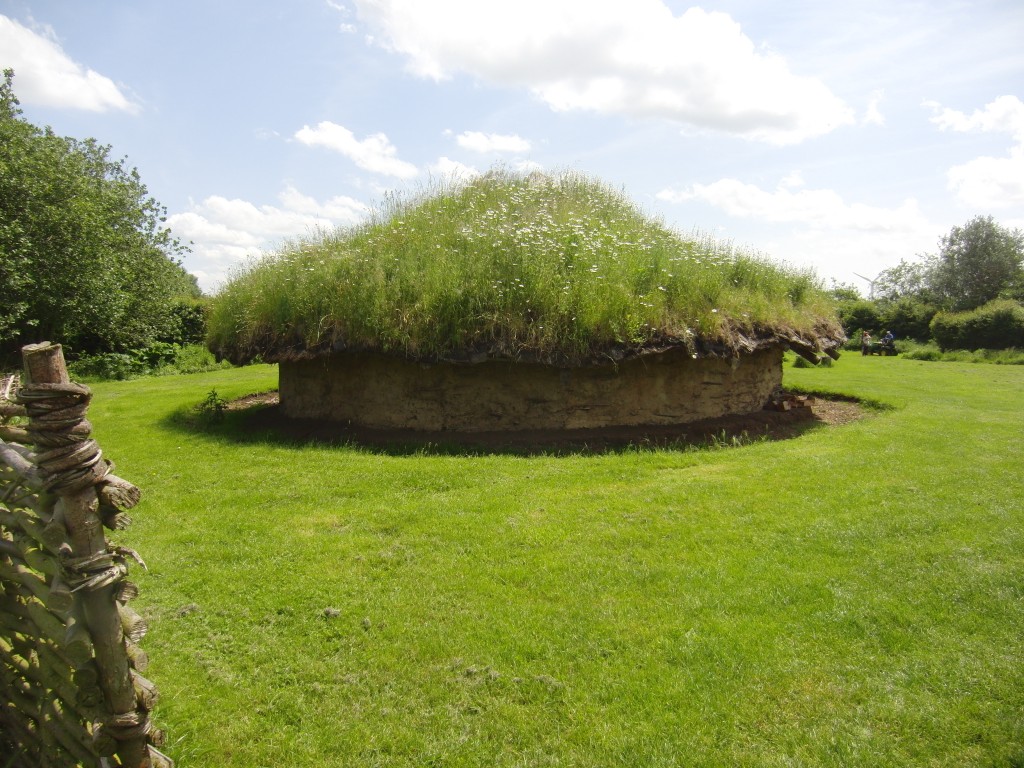
A reconstructed Bronze Age roundhouse, what people would have typically lived in around this place. The dig is not actually a roundhouse though, but a bridge and platform.
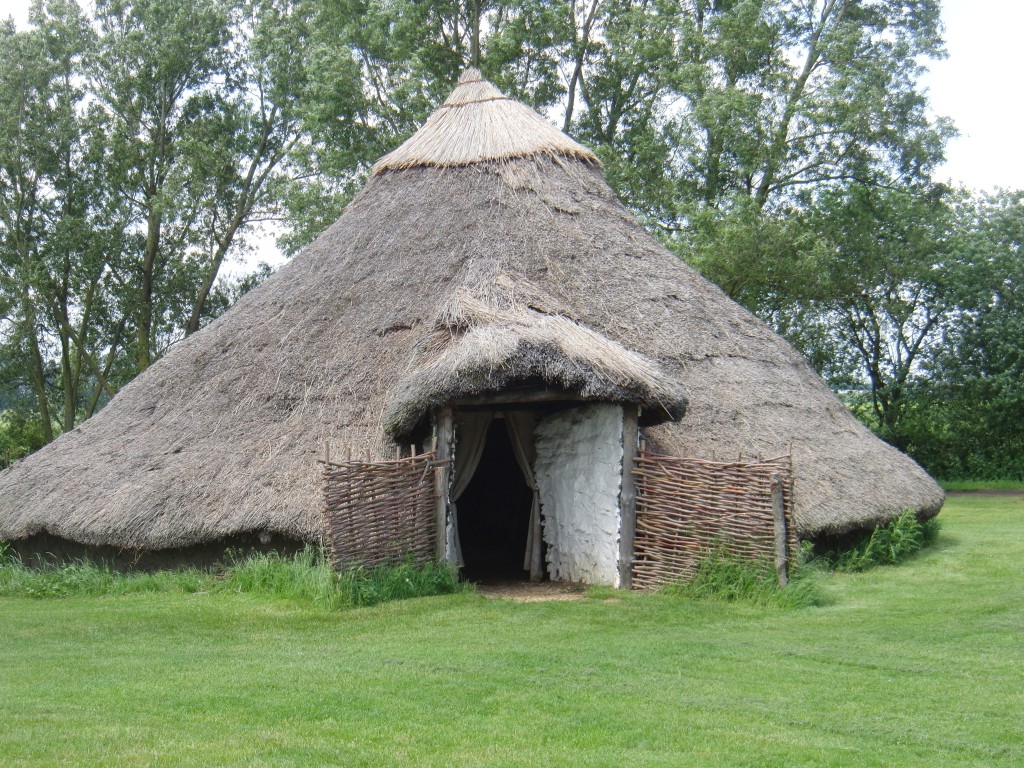
An Iron Age roundhouse. Not, I know, very obviously different, but there are some technological innovations. The thatch, for instance, and inside it’s divided into little spoke- like roomlets.
It’s starting to rain like crazy, and weather is supposed to be pretty icky. We will have to see what tomorrow brings!
